Input tax in Switzerland: What can be claimed?
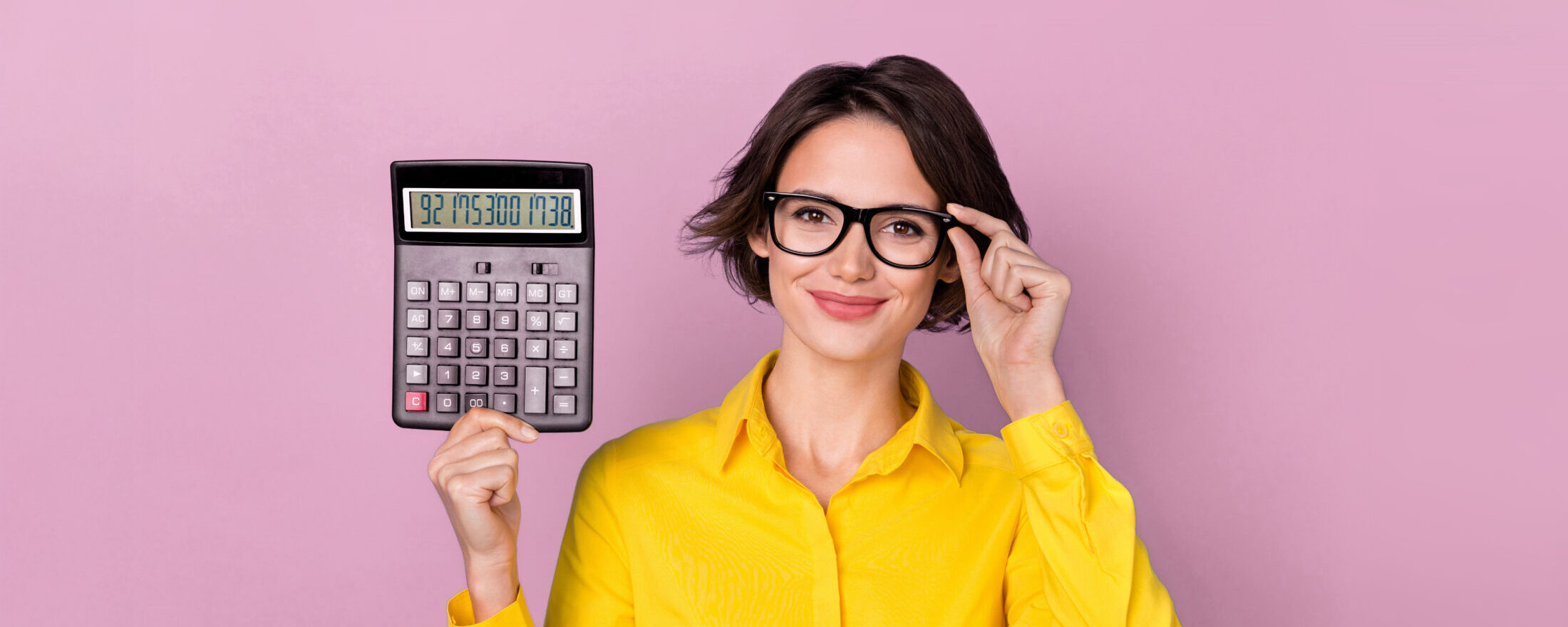
The ability to claim input tax deduction is a key feature of the VAT system. It allows businesses to recover the VAT they have paid on purchases and pass on their VAT liability to the end consumer. In this article, we explore the concept of input tax deduction in Switzerland. We explain which businesses are eligible to claim back the input tax they have incurred, and the specific requirements they must fulfil to be able to do so.
Book a free initial consultation with our experts.
Book a callHighlights
- Value Added Tax (VAT) is applied at each stage of production and distribution, borne by the final consumer
- Businesses collect VAT on sales and deduct it on purchases, paying only the net amount to tax authorities
- Current VAT rates (2025): standard 8.1%, reduced 2.6%, accommodation 3.8%
- Companies with an annual turnover of at least CHF 100,000 must register for VAT
- Input tax deduction allows businesses to deduct the VAT paid on purchases from the VAT collected on sales
Content
- Input tax in Switzerland: What can be claimed?
- Highlights & content
- How does VAT work?
- Input tax deduction
- How do you claim input tax deductions in Switzerland?
- What are the VAT requirements for companies based abroad?
- Do you need expert support?
- That’s what our customers say
- FAQ
How does VAT work?
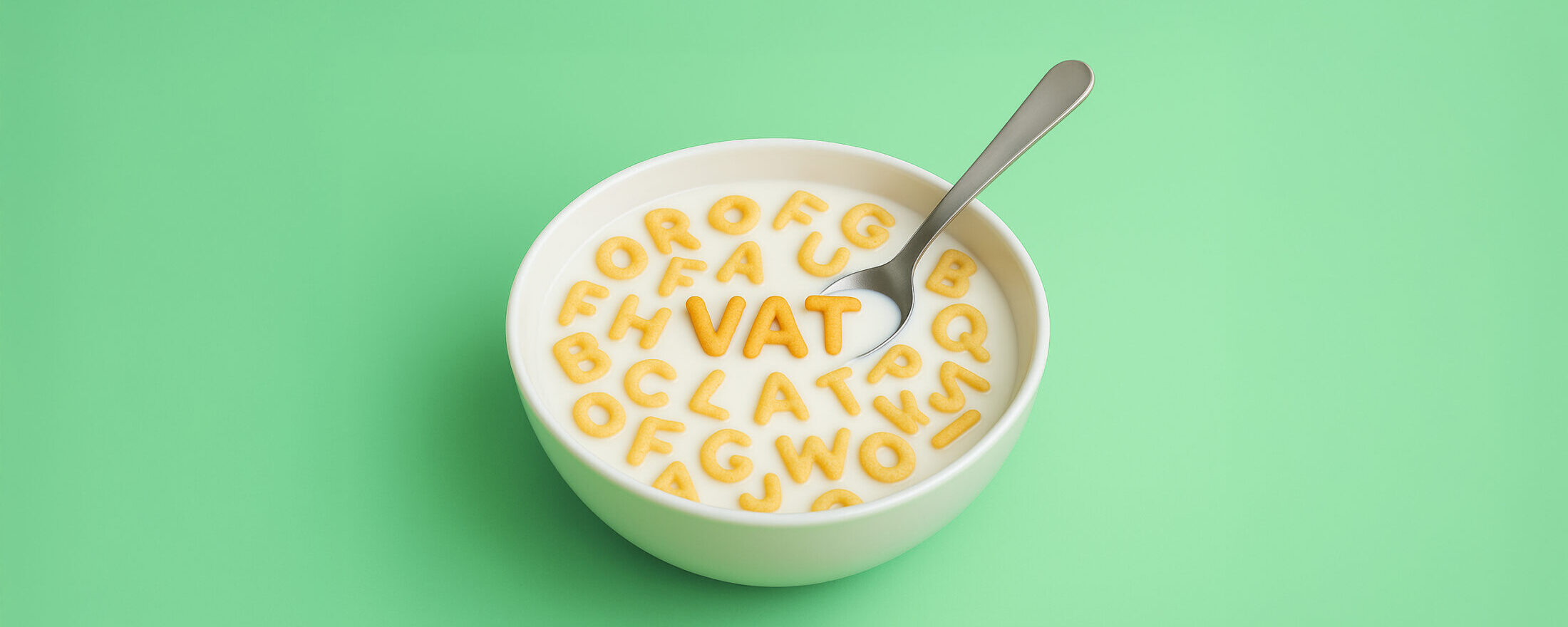
Value Added Tax (VAT) is a consumption tax that is applied to the value added to goods and services at each stage of their production and distribution. It is collected at each step of the supply chain but is ultimately borne by the final consumer. This is because VAT registered companies are able to reclaim the VAT which they themselves pay on the goods and services they purchase in their production process, in the form of input tax deductions. In turn they charge VAT on the goods they sell and are required to hand over the amount collected to the tax authorities.
In other words, businesses simply act as intermediaries which collect VAT on behalf of the government. They charge VAT on their sales and deduct the VAT paid on their purchases, thereby paying only the net amount to the tax authorities. This mechanism ensures that the VAT burden is ultimately passed on to the end consumer.
This system is called the net all-phase system with input tax deduction. The object of taxation (taxable object) is all supplies made within the country for consideration and for which the law does not provide for an exemption.
VAT rates in Switzerland
Switzerland applies three different VAT rates depending on the nature of the product or service in question:
- The standard rate of 8.1% which applies to majority of goods and services.
- A reduced rate of 2.6%, which is applicable to certain essential items like food, water, pharmaceuticals, and books.
- A special rate of 3.8% for hotel accommodation services.
- In addition, certain exports and international services are exempt from VAT in Switzerland.
Who is obligated to register for VAT?
Mandatory VAT registration in Switzerland applies when your business generates at least CHF 100,000 in annual turnover from taxable supplies, both domestic and international. Non-profit organizations face a higher threshold of CHF 250,000.
In Switzerland, all businesses with a total annual turnover of at least CHF 100,000 in Switzerland and abroad, for goods and/or services which are not exempt from VAT, are obligated to register for VAT. Once registered, they are required to charge and collect VAT on their taxable supplies. In turn, they can claim input tax deductions on the VAT they pay while purchasing goods and services as part of their production process. Take note that the threshold is increased to CHF 250,000 for non-profit, voluntary sports and cultural clubs, and charitable institutions.
Voluntary VAT registration
Businesses with an annual turnover below the threshold can also choose to voluntarily register for VAT. This can be beneficial, especially for those that mainly deal with other VAT-registered entities. By registering voluntarily, businesses can claim input tax deductions and therefore recover VAT paid on their purchases. This could have a net positive effect for businesses depending on their specific situation.
Did you know? Switzerland has one of the most competitive VAT environments in Europe. According to the Tax Foundation’s 2025 analysis, Switzerland has the lowest standard VAT rate among all major European countries at 8.1%, significantly below the EU minimum of 15% and the EU average of 21.8%.
Here you can easily calculate the costs of your accounting.
Price calculatorInput tax deduction
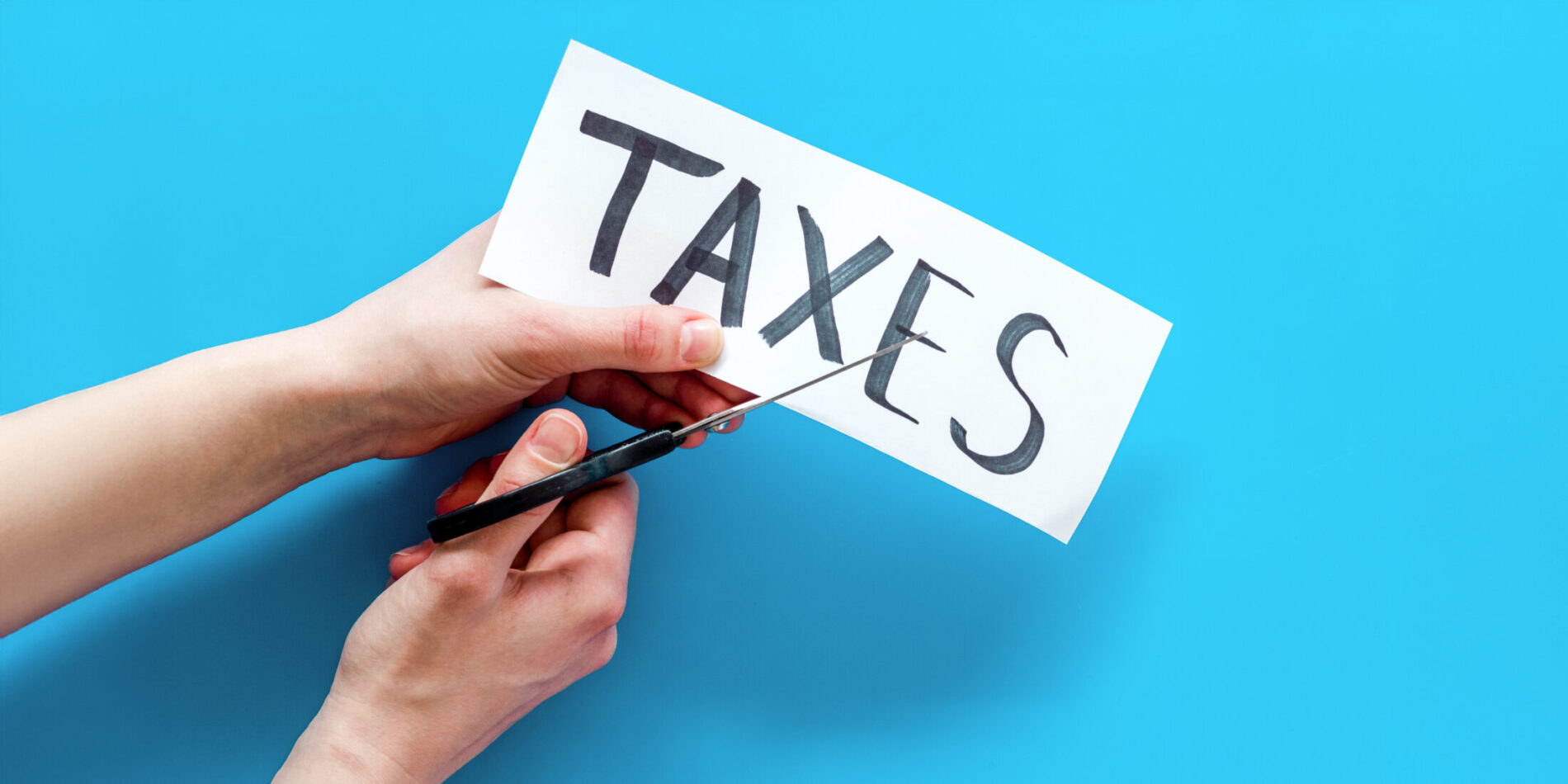
Input tax deduction allows businesses to deduct the VAT they have paid on purchases from the VAT they have collected on sales when calculating their final VAT liability to the tax authorities. By doing so, they effectively recover the VAT they have paid to their suppliers, and therefore only need to hand over the net VAT they have collected. In some cases, the net amount could be negative which means the business would be able to claim a rebate from the tax authorities.
Who can claim input tax deductions?
All businesses that are registered for VAT in Switzerland can claim input tax deductions. To claim these deductions, they must have valid VAT invoices or other supporting documents for their purchases.
What expenses can be claimed as input tax?
Only VAT paid on goods and services used for business purposes is eligible for deduction. VAT incurred on personal or non-business expenses is not deductible. For these expenses to qualify as deductible for input VAT purposes, they must not be tax-exempt without credit.
What about small businesses?
It is not mandatory for small businesses with an annual turnover of less than CHF 100,000 to register for VAT. Small businesses which do not register are not required to charge and report VAT on their sales; but it also means they are not able to claim input tax deductions. This exemption simplifies the administrative burden for small businesses.
Small businesses who feel it would be in their best interest to register for VAT can do so voluntarily. Once registered, they will have the same VAT obligations as larger companies who are obligated to register.
Here you can easily calculate the costs of your accounting.
Price calculatorHow do you claim input tax deductions in Switzerland?
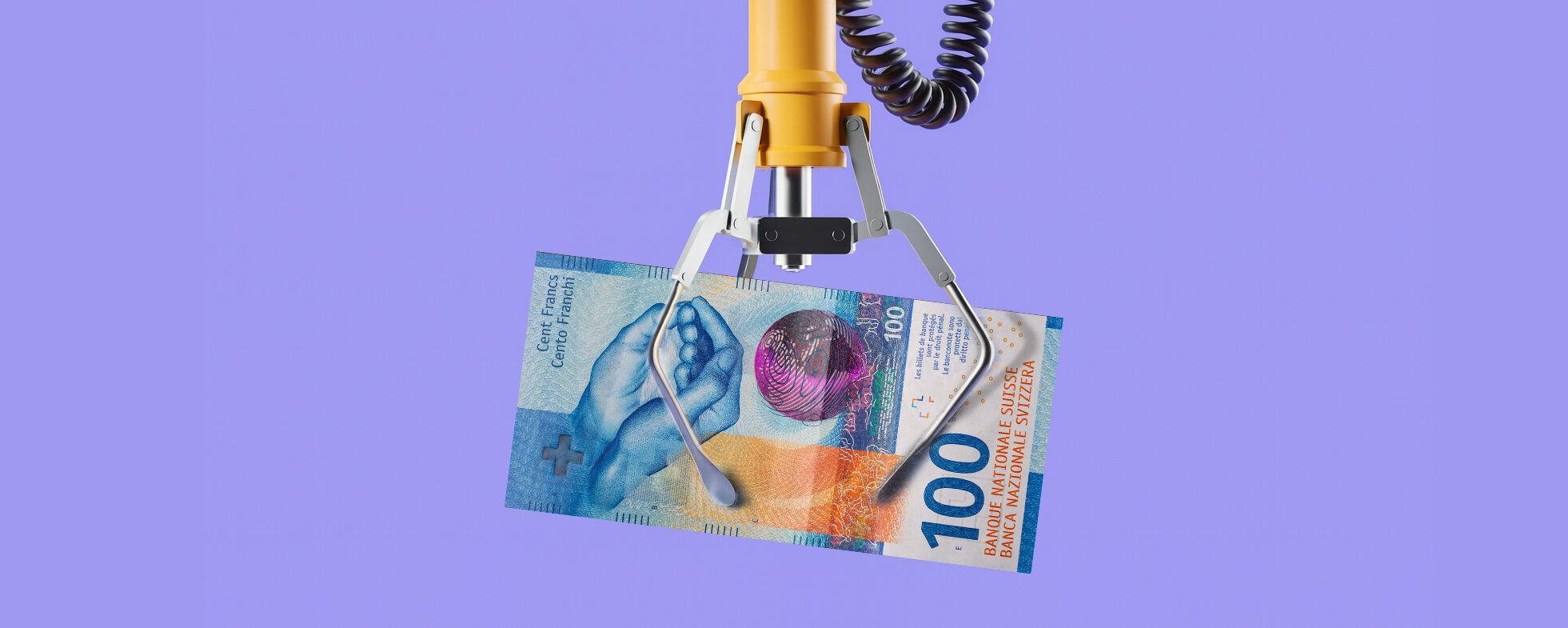
To claim input tax deductions, businesses must maintain valid VAT invoices with all mandatory elements, submit VAT returns to the Federal Tax Administration, and ensure all claimed expenses relate to taxable business activities.
Invoicing requirements
For a business to be able to claim input tax deductions, they must ensure that their suppliers issue valid VAT invoices for the goods or services purchased. These invoices should include the following mandatory information:
- Supplier’s name and address
- Purchaser’s name and address
- Supplier’s VAT number (same as UID number)
- Date of delivery of the goods or services, as well as the date of the invoice
- Description of the goods or service
- Total fee amount
- The VAT rate applied and the VAT amount
- Signature (or digital signature)
VAT reporting frequency
Most VAT-registered businesses file their VAT returns on a quarterly basis, while businesses using the net tax rate method have the option to file semi-annually. As of 1 January 2025, businesses with annual turnover up to CHF 5,005,000 may opt for annual filing, regardless of which method they use (effective or net tax rate).
To qualify for annual filing, businesses must demonstrate a clean compliance record with timely submission and payment of previous returns. Applications for annual filing are submitted through the FTA ePortal. Note that annual filers must still make installment payments throughout the year based on the previous year’s VAT liability. These returns show the VAT collected on sales and the VAT paid on purchases. Input tax deductions can be claimed by offsetting the VAT paid against the VAT collected.
Balance tax rates & flat-rate VAT rates
Balance tax rates and flat-rate tax rates are industry rates that considerably simplify the settlement of VAT with the FTA because input taxes do not have to be determined.
However, in the invoices to the customers, the taxable person must show the tax at the statutory tax rate.
With these billing methods, the tax due is calculated by multiplying the gross turnover, i.e. the turnover including tax, by the corresponding balance tax rate or flat tax rate approved by the FTA. The VAT statements for the balance tax rate method only have to be submitted semi-annually
According to the Swiss State Secretariat for Economic Affairs (SECO), nearly one third of all Swiss SMEs use the simplified net tax debt rate (NTDR) method for VAT reporting. This simplified approach reduces administrative burden by eliminating the need to track individual input tax deductions, making it particularly attractive for smaller businesses with straightforward operations.
Example of input and output tax calculations
Let us now explain the input tax system using a simple example:
- Suppose a wool spinning mill procures merino wool and processes it into yarn. They sell the yarn to a textile factory which specialises in the weaving of high-quality merino wool shawls, among other products. The mill invoices the textile factory an amount of CHF 40 per pound of yarn (approx. 450 grams) plus CHF 3.24 in VAT (standard rate of 8.1%). The textile factory therefore pays a total of CHF 43.24 per pound of wool. The spinning mill keeps CHF 40 and pays the VAT of CHF 3.24 to the tax office.
- The textile factory uses each pound of wool to make one shawl, which they sell to a shawl emporium for CHF 80 each, plus CHF 6.48 in VAT (at 8.1%). The shawl emporium is therefore invoiced a total of CHF 86.48 per shawl. The textile factory can deduct the input tax of CHF 3.24 they paid to the spinning mill from the VAT of CHF 6.48 they received from the shawl emporium and must therefore pay a total of CHF 3.24 to the tax office.
- The shawl emporium sells the shawls for CHF 100 each, plus VAT of CHF 8.10 (at 8.1%) to their customers, who must therefore pay a total of CHF 108.10 for each shawl. When calculating the amount of VAT they have to pay to the tax office, the shawl emporium can deduct the input tax of CHF 6.48 from the VAT amount of CHF 8.10 they received at the time of sale. They therefore owe an amount of CHF 1.62 to the tax office for every shawl they sell.
Upon adding up the incremental VAT amounts that are paid to the tax office at each stage of the production process, we come to a total amount of CHF 8.10 (3.24 + 3.24 + 1.62), which is equal to the final VAT amount paid by the end consumer. This system of VAT collection, where input tax deductions play a crucial role, ultimately means that the final consumer pays the entire VAT liability.
In essence, VAT is not truly an additional expense for the companies involved, due to their ability to deduct their input tax expense.
Take note that this example assumes all the companies are VAT registered.
Book a free initial consultation with our experts.
Book a callWhat are the VAT requirements for companies based abroad?

Companies based abroad are now subject to the same VAT requirements as domestic companies if they provide taxable services in Switzerland and generate at least CHF 100,000 turnover per year from taxable and zero-rated services in Switzerland and abroad (see the FAQ section to understand the difference between zero-rated and tax-exempt supplies).
A more in-depth discussion of the VAT liability which applies to companies based abroad who deliver mail-order to Switzerland can be found here.
Here you can easily calculate the costs of your accounting.
Price calculatorDo you need expert support?
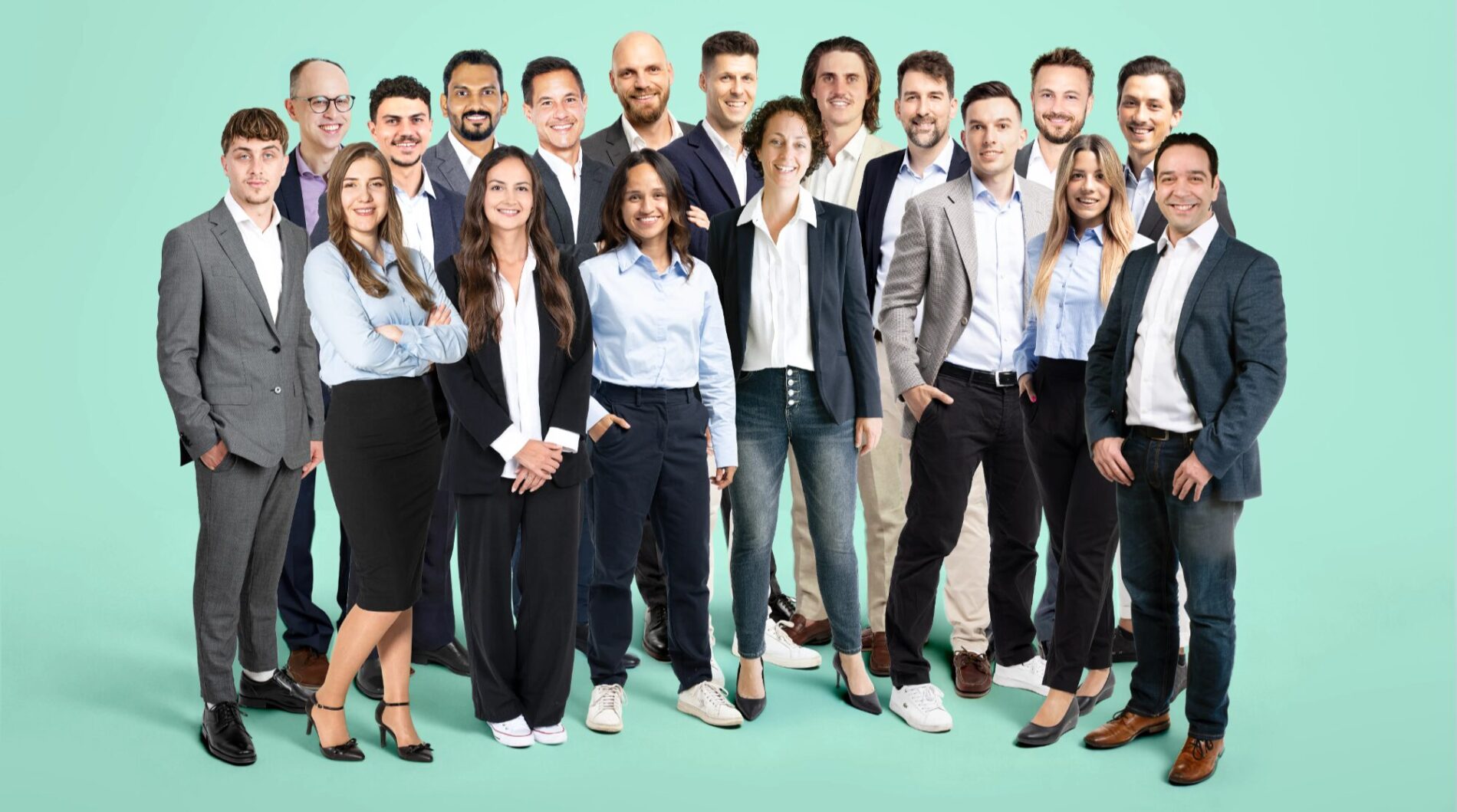
Due to the complexities of handling VAT from both a legal and accounting perspective, companies are strongly advised to hire an expert tax consultant and bookkeeper to handle the necessary tasks. Nexova AG has extensive experience in dealing with all issues related to VAT in Switzerland. We can help you with the legal aspects of registering for VAT, as well as reporting and paying the VAT you collect, and claiming back input tax deductions. We will also ensure that your VAT recording processes are up-to-date and accurate, so that you always remain fully compliant, while maximising the amount you are able to claim.
Contact us today to find out more about how we can serve you!
That’s what our customers say
Your feedback matters
Mr. Merz has a very broad knowledge and was able to help me with all my questions. The conversation was very pleasant and very informative for me. Thank you for your support.
Uncomplicated or serious? Both here. A young, smart team is at work here, offering excellent services, highly uncomplicated and competent. Instead of a prestigious reception area, expensive offices and a few small gifts, you offer fast and competent services. For me as a one-man company, this is exactly what I need.
I have been a Nexova customer for some time now and so far I am very satisfied! Thanks to the digital working methods and high responsiveness of the client managers, little time is lost in the daily process in particular. The prices are also very fair. Nexova handles the annual financial statements for me, including the tax balance sheet. The processes are standardized, which is a great advantage for audits (AHV and taxes). The two founders are two young, innovative guys and very serious.
The friendly and competent Nexova employee was able to answer my questions about company car taxation quickly and specifically. Thank you very much for this!
When I founded my company a year ago, I needed a reliable fiduciary partner. In addition to pure accounting, Nexova also offers me very good advice on all aspects of labor law. Thanks to the E-Post solution, I no longer even have to worry about my company mail and can focus purely on my service activities. My contacts at Nexova are always very friendly and pleasant to deal with. The complete package is simply TOP and I can only recommend Nexova!
Top company & friendly owners. A highly recommended trustee.
Very good and competent advice!
Professionally at a very high level. They are very good with Excel and could also support us with automation of processes.
I had a few questions about remote work and was advised super and free of charge. Thank you very much!
Very good service. Good and competent advice with friendly staff. I can definitely recommend
The Nexova team is very professional and I felt they always had my best interests at heart. I highly recommend Nexova and will continue to refer my clients to them and trust them with my business.
I am impressed with their outstanding service, especially in the field of accounting services, they demonstrate a professional approach and exceptional attention. As a lawyer, I have found Nexova to be a valuable partner in the financial world.
I had an excellent consultation with Nexova AG regarding withholding tax. Their expertise is remarkably extensive and their guidance was invaluable, I highly recommend their services. A first class experience.
The Nexova Team is an important partner to our startup, enabling us to pass all of our accounting, tax and payroll duties. We specially value their expertise with Startups and flexibility, which allows us to plan and manage our financials effectively and to focus on the bottom line of our operations.
We are very satisfied with Nexova as our trustee. Thanks to the Teams group chat, I can always count on very fast response times (of a few minutes). The Teams Chat group is great. With our old trustee, we had to write mails and always had to wait a long time for an answer and on top of that we were charged for every little question. Fortunately, this is not the case with Nexova.
Nexova solved my problem with a non-paying tenant quickly and efficiently. I was simply overwhelmed with the situation and glad for the competent legal advice. Nexova handled everything from the reminder with threat of termination, to representation in court, to the police eviction quickly, efficiently and also inexpensively. Many thanks for the valuable help.
FAQ
Answers at a click
Can I claim input tax deductions if I’m not VAT registered?
No, only businesses registered for VAT in Switzerland can claim input tax deductions. However, if your turnover is below CHF 100,000, you can voluntarily register for VAT to gain the ability to claim input tax deductions, which may be beneficial if you have significant business expenses subject to VAT.
What happens if I have more input tax than output tax in a quarter?
If your input tax (VAT paid on purchases) exceeds your output tax (VAT collected on sales) for a reporting period, the net amount will be negative. In this case, you can claim a refund from the Federal Tax Administration for the difference, effectively receiving money back from the tax authorities.
Are there any expenses where I cannot claim input tax even if I’m VAT registered?
Yes, certain expenses are excluded from input tax deduction. These include VAT on goods and services used for private purposes and VAT related to exempt supplies (such as financial services or certain healthcare services). Additionally, if an expense is used for both business and private purposes, only the business portion of the VAT can be claimed.
How long must I keep VAT invoices for input tax claims?
Swiss law requires businesses to retain all accounting records, including VAT invoices, for a minimum of 10 years. These documents must be readily available for inspection by the Federal Tax Administration if requested. Proper documentation is essential to substantiate your input tax deduction claims during tax audits.
What is the difference between the effective method and the flat-rate method for VAT?
The effective method requires businesses to track and report actual VAT collected and paid, allowing full input tax deduction based on valid invoices. The flat-rate method uses industry-specific rates approved by the FTA and simplifies VAT settlement by eliminating the need to determine individual input taxes. With flat-rate methods, you calculate tax due by multiplying gross turnover by the approved rate, though you must still show statutory tax rates on customer invoices. Small businesses often prefer flat-rate methods for their administrative simplicity.
What is the difference between zero-rated and tax-exempt supplies?
This distinction is vital for understanding VAT registration thresholds and input tax rights in Switzerland. Zero-rated supplies (also called “exempt with credit”) are taxed at 0% VAT, meaning you don’t charge VAT to customers, but you can still claim input tax deductions on your business expenses. The most common example is exports (goods transported directly abroad are zero-rated). Turnover from these supplies DO count toward the CHF 100,000 registration threshold.
Tax-exempt supplies (also called “exempt without credit”) under Article 21 of the Swiss VAT Act include services like healthcare, insurance, banking, financial services, most education, and certain cultural services. For these supplies, you don’t charge VAT to customers AND you cannot claim input tax deductions on related expenses. Turnover from these supplies do NOT count toward the CHF 100,000 registration threshold. This means a company providing only exempt-without-credit services (such as a hospital providing only medical treatment) would never need to register for VAT, regardless of turnover.

